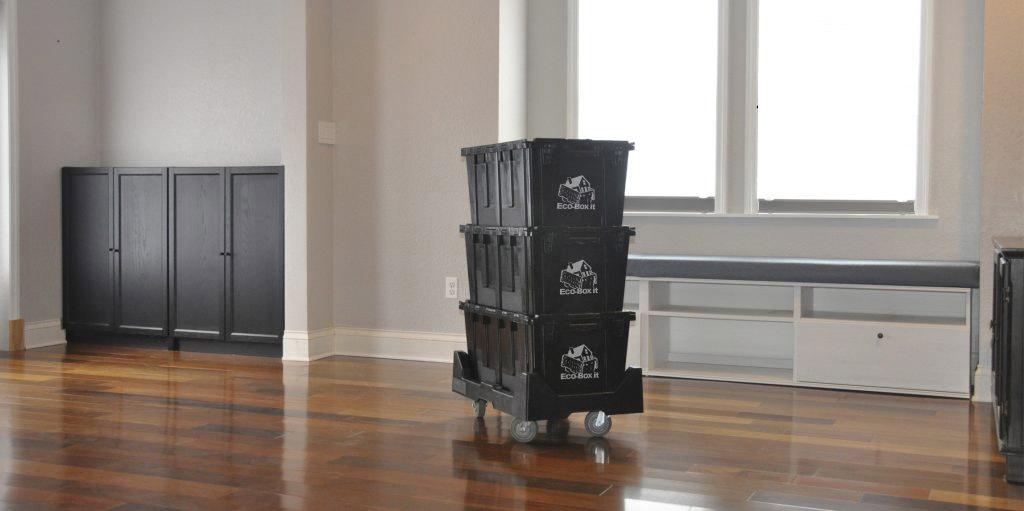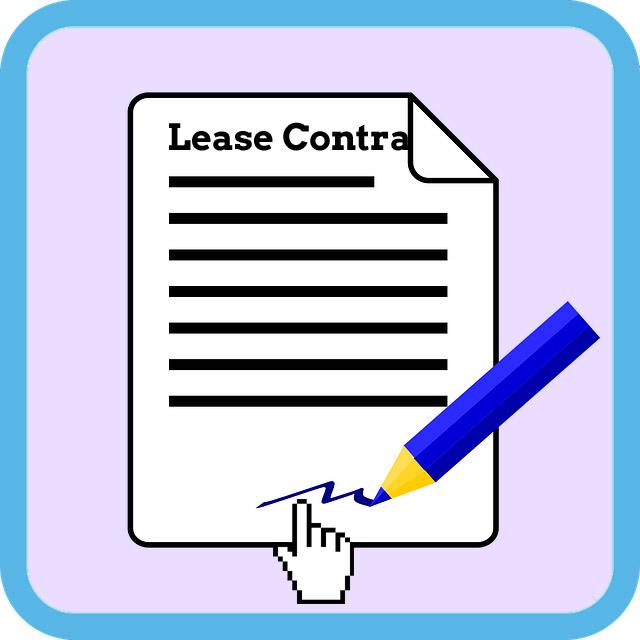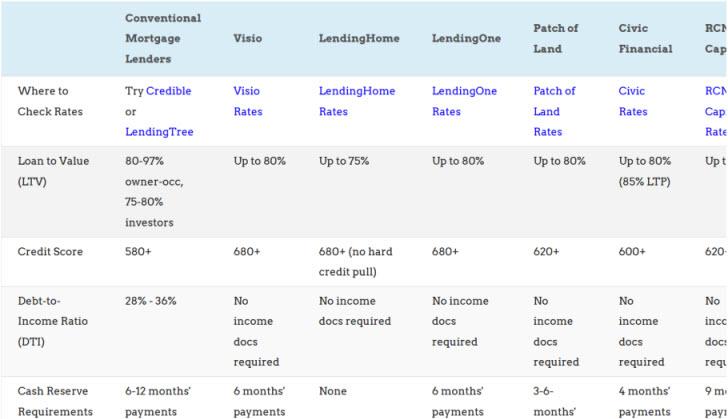
In most cases, landlords cannot break a lease agreement mid-term.
For that matter, tenants aren’t allowed to do so either, even if they often get away with it. It’s hard to chase down tenants and actually collect money for early move-out.
Here’s what landlords need to know about breaking lease agreements midway through the lease term.
Month-to-Month vs. Term Leases
First and foremost, either party can terminate a month-to-month rental agreement at any time, with proper notice to the other party. In most states, that means a minimum of 30 days’ notice before move-out.
If you sign a fixed-term lease agreement however, such as a standard one year lease, you can’t just break it halfway through just because you feel like it. In nearly all cases, you must wait until the end of the lease term approaches before sending a termination notice.
The notice period varies by state law in those cases, usually between 30-90 days’ advance warning. You must send written notice to the other party of your intention to terminate the lease, within that period of time.
Note that in a few extremely tenant-friendly states, landlords have no choice but to renew tenants’ lease agreements even when the term ends, unless the tenant provides “just cause.” Tenant activists managed to rebrand non-renewals as “no cause evictions,” a misnomer but an effective political tactic to shove through legislation. (Word to the wise: don’t invest in these states!)
Early Lease Termination Clauses
While landlords can’t typically break a full term lease midway through, they can write an early termination clause into the lease agreement.
It still typically requires advance written notice, such as 30 or 60 days. And tenants might balk at the clause when they review the lease contract.
If there’s a chance you might want to break a lease agreement early, sign a month-to-month lease rather than hassling with early termination of a term lease. Even with an early termination clause, tenant-friendly judges may not look kindly on it if the tenant objects in court.
Sale of the Property
Landlords can sell their property whenever they want. However lease contracts survive the sale, meaning they transfer with the property and the new owner must honor them.
Not that it should bother you as a landlord. Many real estate investors specifically look to buy properties with existing tenants. It makes for the ultimate turnkey property investing!
Note that many states require landlords to offer tenants the right of first refusal. They must offer to sell the rental unit to the tenants for the market value before listing it for sale publicly.
Legal rights aside, if you’re thinking about selling a rental property with tenants in it, do what you can to keep the tenants happy. They can help smooth the sale, or they can turn off prospective buyers at every opportunity.
Tenants have rights that affect the sale of the property. Some of these include:
- 24 hour notice prior to any showings
- The right to be present during showings
- Security deposit returns
That latter means that you must transfer the tenant’s security deposit to the new property owner at settlement.
If you’re hoping to sell the property to homebuyers and want the tenants to move out before you market the property for sale, send a non-renewal notice when the end of the lease term approaches. Some tenants are messy, dirty, or simply jerks, and make a terrible impression on prospective buyers.
(article continues below)
Free Landlord Tools
Renovations & Repairs
What if the property needs major renovations or repairs in the middle of the current lease term?
For planned renovations, simply wait until the next lease renewal and send advance notice for nonrenewal within the appropriate time period. You can make planned upgrades after the tenant moves out.
But if an emergency arises and the property needs substantial repairs, the tenant may need to move out mid-lease. The rules here vary by state and local landlord-tenant laws. In tenant-friendly jurisdictions, you might need to pay for the tenant’s accommodations for a certain period of time.
When possible, do the repairs with the tenant continuing to live in the rental unit.
Landlord Move-In
Just because you own the property doesn’t mean you can kick out your tenants and move in any time you feel like it.
You must honor the lease agreement you signed. As the end of the lease term approaches, you can serve them with a notice of termination and remind them they must move out at the end of it, but you can’t evict them mid-lease without cause.
In those extremely tenant-friendly states that require “just cause” to non-renew lease agreements, landlord move-in does constitute “just cause.” However you must typically live in the property as your primary residence for at least three years afterward.
Tenant Lease Violations
What if your tenants breach the rules of the rental agreement?
In that case, you begin the eviction process by serving your erstwhile tenants with an eviction notice specific to your state. After giving them the state-mandated waiting period, you can then file in court for eviction if they still haven’t cured the violation.
Note that lease violations don’t end with non-payment of rent. Other violations could include unauthorized occupants, unauthorized pets, property damage, cleanliness or noise violations, or any other breach of your lease agreement.
Unless you specifically included early lease termination clauses in your rental contact, unpaid rent or other lease violations are typically the only instance where a landlord can break a lease agreement.
Related Article Read: How to invest 1000$ in real estate?
Related Article Read: How to avoid 20% down payment on investment property?
(article continues below)
Cash for Keys
It might stick in your craw, but you can pay tenants to leave early if you really want them out.
Known as “cash for keys,” you offer the tenants a lump sum payment for them to move out and leave the property in excellent condition. Your cash for keys offer should be contingent on them moving out by a certain date and leaving the rental property in sparkling condition. Walk through the property with the tenants after they move out to make sure they left it in perfect shape, and only pay them after verifying.
If the tenant does not agree to the offer, you must accept their decision. It’s illegal to try and force or harass the tenant out of their home.
Despite the name “cash for keys,” pay them with a check or online transfer to keep a paper trail.
The Role of Rent Control
In areas with rent control, expect tenants, activist attorneys, and judges to scrutinize your every move.
Do not try to break a lease agreement early. It’s hard enough to non-renew tenants in rent controlled areas and have them move out even when the lease term ends.
Be squeaky clean to avoid lawsuits and other legal headaches in rent controlled units.
Final Thoughts
If you aren’t sure how long you want to rent out your unit, sign a month-to-month tenancy agreement rather than a full-term lease. Or, if you insist on a term lease, write in an early termination clause listing the procedures and circumstances under which you can terminate the lease mid-term.
Always keep copies of all communications with your tenants, because you never know when they might challenge you in court.♦
Have you ever tried to break a lease agreement mid-term? What happened?
Related Article Read: How to buy an investment property with no money down?
Related Article Read: How to calculate depreciation on rental property?
More Real Estate Investing Reads:
About the Author

Emma Dudley is a data marketer by day and financial writer by night, early on her journey to financial independence. She lives in Baltimore but loves international travel, and enjoys the challenge of cutting-edge fashion on a cut-down budget.































We had a tenant that wanted to break the lease but gave us a 30-day notice. They were really great tenants, who took care of the house. We set up a neutral termination of the lease and had them pay the whole month they were there even though they were leaving early in the month.
Glad to hear you were able to find a mutually agreeable solution with your tenants Tim!
This information is bread and butter for Landlords like us. Thank you!!
There could be a million reasons to break the lease agreement but I think one should find a single reason not to break it if you are earning good money.
Why would landlords want to break the lease agreement?
Sometimes tenants are extremely disruptive to their neighbors/the other tenants. In those cases, landlords want to get the bad tenants out in order to keep their good tenants.
Giving prior notice is the best way to go. You cannot just tell your tenants to get out in the middle of the contract. Good tips.
Agreed Zach!
Well, this is a common issue now. Many tenants and landlords have to face this situation and obviously, landlords have the upper hand to break the lease agreement.
Tenants break leases early far more often than landlords Will!
It’s good to know how landlords can break lease agreement. Thanks for sharing.
Hope you’re never in a situation where you feel like you have to break a lease contract Miss JD!